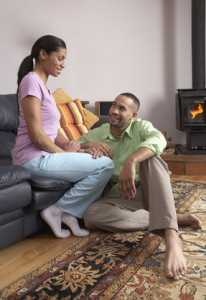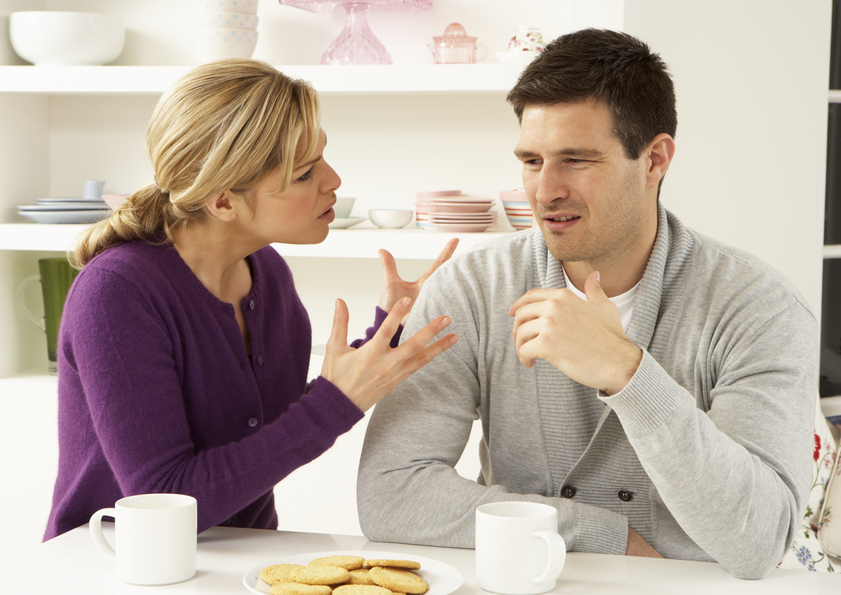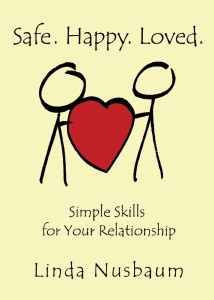When people get their feelings hurt, they usually want someone to make them feel better. This pattern of getting hurt and someone being there to sooth you can be traced back to when we were little children. We all fell down and someone, (hopefully) took care of us.
Sometimes I hear couples tell me they are good communicators. One or both will say they know how to tell their partner when they get upset. I ask them how they do this and they tell me they say, “You hurt my feelings.” I listen and nod my head and wonder if it works. Then I ask them, and they always say, “No.”
Hurt Feelings Are Inevitable

I am a big fan of people telling their partners and loved ones what happens to them when they get their feelings hurt. But that is a very different conversation than just telling someone they are responsible for your upset, and that’s what “You hurt my feelings,” does.
No one wants to carry the burden of knowing they made the person they love unhappy. No one wants to make their partner unhappy; even so, feelings do get evoked in relationships. When we are in close contact with our beloved, if we stay vulnerable and connected to them, we will get our feelings hurt. It’s only natural that at some point in a relationship with another person one or the other will become misunderstood by the other.
The Path to Mending Hurt Feelings
So it’s not getting hurt that is the problem, getting healed is where people struggle. So how does a person who gets his or her feelings hurt get healed? There are ways. I am not going to say it’s easy, but it is doable. Let me explain.
To get someone to understand how you got your feelings hurt, you must first understand what happened to you. You must figure out what you felt when your feelings got hurt. If someone ignored you, you might feel unimportant or left out. If someone said something curt or rude to you, you might feel unloved or disregarded.
Connecting and Healing Hurt Feelings with Empathy

In each of these examples the person who got their feelings hurt could easily say, “You hurt my feelings.” They can also say, which takes more skill, “Hey, when you left the house without saying good bye I felt sad and forgotten. The first way accuses the partner of doing something terrible, of hurting their partner’s feelings, maybe on purpose. The second way tells the partner what the person felt and why. The first way blames the mate. The second way is an opening for the partner to join. Of course the second way can’t be delivered in a crying or accusing voice. It has to be delivered with love.
The reason I say opening is that if you tell your partner what happened to you when they did such and such and you say it with no accusing energy, your partner will be able to not only hear you, they may also feel connected to your feelings and that can create something really special called empathy. Your partner may be able to actually feel what happened to you and when they do they might feel sad that they caused it (even without knowing) and then you will get what you are looking for. They might even say something like, “I’m sorry. I didn’t mean to hurt you like that.” And when that occurs you feel healed and connected to the person you love. That’s called shared suffering and that’s some pretty powerful stuff between two people.
It’s Not Natural or Easy, but It’s Worth Learning
This is not an automatic response. In fact it is a skill you build. And it is possible. I teach couples this all the time. You can learn it. It takes practice. But once you do this your mind, heart and body will never forget it. It feels too good not to do it again and again.
Even More Tools for Dealing with Hurt Feelings
Read a Book with Communication Tips to Help You and Your Partner Handle Hurt Feelings
Can’t make it on Monday? You can learn more about how to communicate clearly with your partner by reading Linda’s book, Safe. Happy. Loved. Simple Skills for Your Relationship. It’s full of relationship advice, including tips on how and when to voice your feelings to your partner. It may help you connect on a deeper level, with your newfound understanding of one another’s needs.
Get Couples Counseling
Come in for couples counseling. Couples counseling can help you and your loved one get the most out of your relationship. It'll equip you with coping strategies and tools for communication that can help you argue less and love more.


